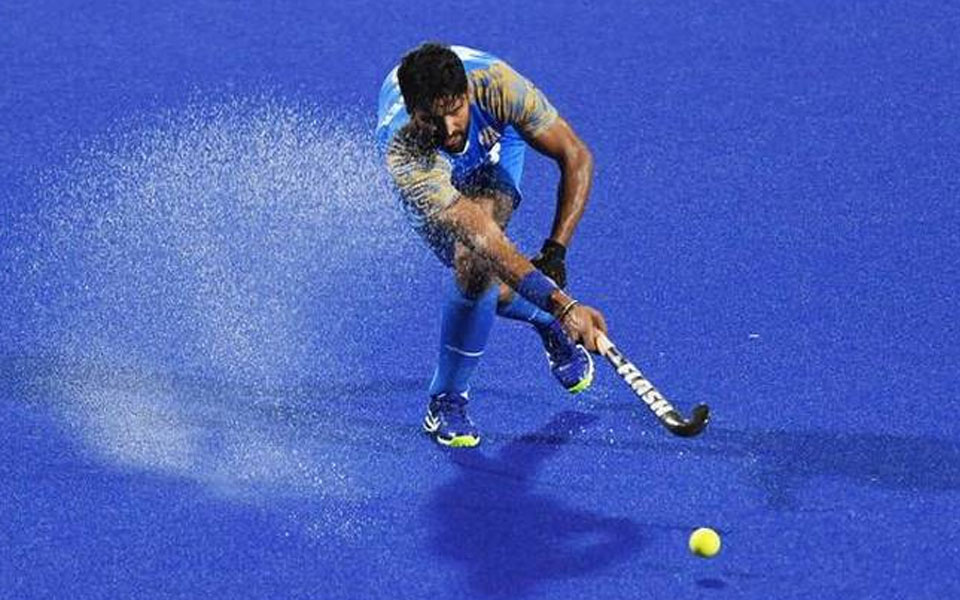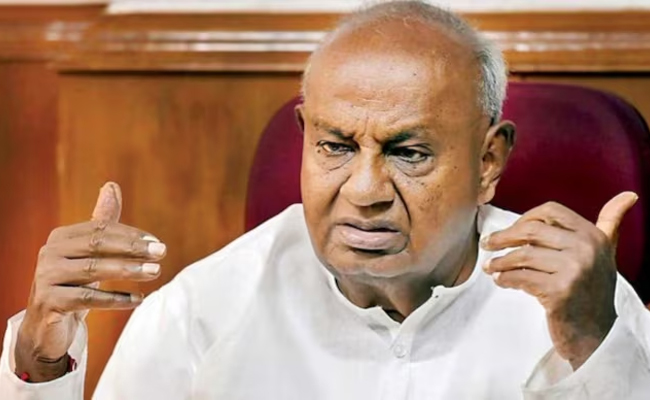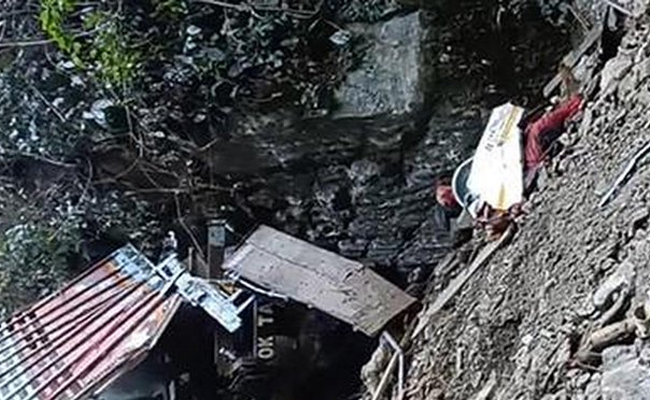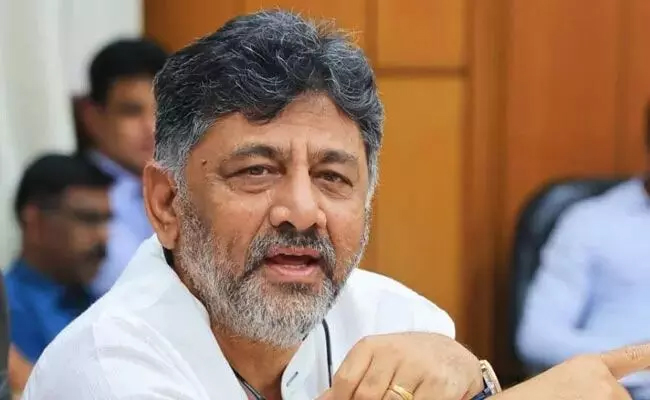Jakarta: Reigning Champions India continued their winning streak at the 18th Asian Games as the men's team notched up a spirited 8-0 victory against Japan in their third Pool A match here on Friday.
With yet another high-scoring victory margin, India have taken their total goals scored in the tournament to a record 51 goals after winning 17-0 against Indonesia followed by 26-0 against Hong-Kong China in their first-two matches.
S.V. Sunil (7th minute), Dilpreet Singh (12th), Rupinder Pal Singh (17th, 38th), Mandeep Singh (32th, 57th), Akashdeep Singh (46th) and Vivek Sagar Prasad (47th) scored in India's fine win.
India converted eight of the 23 shots on goal. Six of them were field goals including one PC and one penalty stroke. Though Japan put up a fighting front with their defence, Indian attack was top class right from the word go.
India's first goal came through a brilliant pass by Harmanpreet Singh to Akashdeep Singh who further assisted S.V. Sunil make a perfect deflection into the goal.
In the 12th minute Dilpreet Singh converted India's second goal which was an excellent display of one-touch hockey with Manpreet Singh's fierce pass into the striking circle which was picked up well by Dilpreet who took a successful perfect reverse shot on goal.
Only minutes prior, Lalit Upadhyay's assist to Akashdeep Singh, who took a shot on goal, was padded away by Japanese goalkeeper.
Another great goal came in the 32nd minute when a fine dribble by Amit Rohidas into the striking circle made a cross-pass to Mandeep Singh who took a quick-fire shot on goal.
Even as Indian forwardline led the attack with aplomb, the team's defence stood firm not allowing Japan to make any successful forays into the striking area.
The only real attempt on goal came when Kenta Tanaka took a strong shot in the 8th minute but was brilliantly blocked by India's ace goalkeeper PR Sreejesh who is yet to be tested in this tournament. Kentaro Fukuda too took a shot on goal in the 36th minute but was saved by the Indian goalkeeper.
Meanwhile, Japanese goalkeeper Yusuke Takano made brave saves that kept Indian scoreline from racing ahead.
"This was an important win for us to keep up the momentum in the tournament. I am happy with the way the team is taking this tournament one-match-at-a-time. Japan is a good team with excellent defensive abilities and we wanted to keep them from making counter attacks as it is one of their strong points," India coach Harendra Singh said.
"Our aim is to keep winning all our matches in the Pool Stage and make it to the Semi Final. That is our first hurdle and we will need to rest well and pay attention to recovery now ahead of our next match against Korea," he added.
India will now face South Korea on August 26 in their fourth Pool A match.
Let the Truth be known. If you read VB and like VB, please be a VB Supporter and Help us deliver the Truth to one and all.
New Delhi (PTI): Former Prime Minister H D Devegowda on Monday said the Opposition parties would "suffer" if they continue to raise allegations of "vote chori" and create suspicion in the minds of voters by blaming Prime Minister Narendra Modi-led government.
Participating in a discussion on election reforms in the Rajya Sabha, he criticised the Opposition for making a mockery about the Prime Minister "in the streets and on the public platform".
"This (India) is a very big country. A large country. Congress may be in three states. Remember my friends please, by using the words 'vote chori' you are going to suffer in the coming days. You are not going to win the battle," Devegowda said, referring to the Opposition members.
He asked what the Opposition is going to earn by "blaming Narendra Modi's leadership and creating a suspicion in the mind of the voters" through the claims of "vote chori".
"What has happened to their minds? Let them rectify," Devegowda said.
ALSO READ: Search operation ends in Anjaw truck accident, 20 bodies recovered
The former prime minister said that during his over seven decades of public life, he has never raised such issues of vote theft despite facing defeat in elections.
He also cited a letter written by the then Prime Minister Jawaharlal Nehru regarding inclusion of "18,000 votes" (voters) in Kerala.
"Why I am telling this (because) during the Nehru period also, there were certain lapses in the electoral system," said Devegowda, who was the prime minister between June 1, 1996 and April 21, 1997.
He said that the Congress party faced defeat in the recent Bihar elections despite raising the issues of mistakes in the electoral rolls.
"What happened after that even after so much review (of voters list). Think (for) yourself! You got six MLAs," the senior Janata Dal (Secular) leader said.
Devegowda questioned the Opposition as to why they want to make allegations against the prime minister on the issue of the voters list?
"Election Commission is there. Supreme Court is there. The Election Commission has given direction to all the state units to rectify all these things," he said.
Devegowda said people of the country have full confidence in Narendra Modi's government and it will come back to power after the next Lok Sabha elections as well.
K R Suresh Reddy, Bharat Rashtra Samithi (BRS) party's Rajya Sabha member from Telangana, said that electoral reforms are the backbone for a healthy democracy.
He said a large and diverse nation like Indi needs clean electoral rolls.
Asserting that strict re-verification should not become a mechanism for exclusion, Reddy said no eligible voter should lose their right to vote simply because accessing paperwork is difficult.
He said while the concern definitely is on the voters' exclusion, "we should also be equally concerned about the percentage of voting."
"What is happening in voting today? Once the election ends, the drama begins. The biggest challenge that the Indian democracy has been facing in spite of two major Constitutional amendments has been the anti-defection. Anti-defection is the name of the game today, especially in smaller states, especially where the legislatures are small in number," Reddy said.
The senior BRS leader suggested creation of a parliamentary committee "which would constantly look into the defection" and "ways and means to cutting that".
AIADMK's M Thambidurai raised the issues related to election campaigning.
ALSO READ: National Herald case: Shivakumar to seek time next week to appear before Delhi police
"Election campaigns are one of the important election processes. In that, political parties must be given the proper chance to campaign," he said and cited problems faced by his party in Tamil Nadu in this regard.
Thambidurai said political parties were facing hardships in Tamil Nadu to conduct public meetings and to express their views to the public.
YSRCP's Yerram Venkata Subba Reddy stressed on bringing electoral reforms at both the state and national levels.
He also suggested replacing Electronic Voting Machines with paper ballots in all future elections.
"EVM may be efficient but can't be trusted. Paper ballot may not be efficient but can be trusted. You need trust in democracy," Reddy added.





